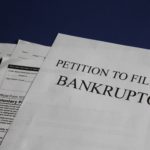What is debt settlement and why is it important? In 2018, American household debt hit a record $13.21 trillion. Although the debt is shared by around 300 million people, it shows the level of borrowing and spending in the country. With such figures, it is important for individual consumers to find effective ways to manage and reduce debt. This not only offers peace of mind but also helps to avoid the ugly mess associated with late payments and defaults. There are a number of options available to borrowers who want to get out of debt, one of them being debt settlement. However, in order to make the most of the process, it is important to understand what it is and the best time to pursue the program.
What is Debt Settlement?
Debt settlement, also known as debt negotiation or debt arbitration, is a debt reduction approach that involves an agreement between a creditor and a debtor. Under the agreement, the creditor accepts to receive less than the full balance owed to them as payment in full. Although some borrowers choose to negotiate with their creditors directly, others opt to have a third party negotiate the process on their behalf. The third-party is called a debt settlement company.
When to Pursue Debt Settlement?
Now that we’re clear on the question “What is debt settlement?”, you should learn when to pursue the option. Just like with most financial decisions, timing is very important when it comes to debt settlement. While this strategy can get a consumer out of debt quickly for less than the total amount they currently owe, borrowers should understand the negative side of this debt elimination strategy and avoid the risks.
Here are some instances when you can pursue debt settlement:
1. When creditors agree to settle the debt
Generally, creditors are under no obligation to settle the debt for less than the debtor owes. As such, one of the factors that will determine whether you pursue this option is the willingness of the creditor to agree to receive less than the amount owed as payment in full. Before one can embark on the process, they have to talk to their creditors first and know the terms under which this program can be pursued.
2. When it will not affect your credit
In most cases, debt settlement will have a negative impact on the borrower’s credit score. The negative mark arises from the fact that the consumer did not meet their financial obligation in full. Since being approved for credit relies on the ability of a consumer to repay the full amount and the accrued interest, the chances of being approved will reduce. However, if you can persuade your creditor to report that the account was paid in full with no mention of settlement, you can consider pursuing this option.
3. When the associated fees are reasonable
Debt settlement companies are known to charge high fees when the debt settles since the law does not allow them to charge fees upfront. However, it is important to note that the fees are charged as a percentage of the debt settled. There is also a chance that you will pay setup and monthly fees for maintaining the associated account. In case the fees appear to be reasonable, and the process will help create a clear path to debt reduction and elimination, debt settlement may be a good idea.
4. When you are working with a professional debt settlement company
The debt settlement process is not always as easy as it sounds. While most debt settlement companies may promise borrowers to help reduce debt by a given amount and make them debt-free within a certain period of time, this is not always the case. This means that consumers should consider debt settlement only if they identify a professional debt settlement company. A reliable company will not only deliver on its promises but will also have a straightforward process.
5. When in extreme financial hardships
Considering the risks associated with debt settlement, this should be regarded as an option only when one is in extreme financial hardships. One instance when you can consider the option is if you are not able to make monthly payments but have enough cash at hand to settle. You can also think of debt settlement if you are constantly receiving calls from debt collectors or in cases where you need a fresh start without filing for bankruptcy.
6. After considering other options
As mentioned earlier, there are several options available to borrowers who are looking to reduce and ultimately eliminate debt. These include boosting income, setting up an emergency fund, debt consolidation, and debt refinancing, among others. Before taking up a debt settlement program, you should look at other options. One of the best ways to do this is to speak to a debt management firm. This will help you to determine which option will get you out of debt without a lot of financial stress.
In the end, deciding when to pursue debt settlement required borrowers to consider the issues mentioned above in totality. With proper financial education, a borrower will be in a better position to know how to go about the process.
What are the Risks Associated with Debt Settlement?
Before deciding that debt settlement is the best option for discharging your debt, make sure you can answer the question “What is debt settlement?” as well as you understand the risks associated with this choice. A careful evaluation of those risks can help you decide whether it’s worth it–and if it will help ease your financial position and overall stress.
Risk #1: Debt settlement may take a long time.
In some cases, it may take years to come to a debt settlement agreement. During this period, your credit score may drop substantially, and you may struggle to acquire other needed loans, including a mortgage or a car loan. You may also feel as though you’re still up in the air, with the weight of your financial struggle hanging over your head, during this wait.
Risk #2: Your credit will suffer.
If you have a high credit score, you may want to pursue methods other than debt settlement to help decrease the drop in your credit score due to your efforts to discharge your debt. How much your credit will suffer will depend on how high your credit score was before pursuing debt settlement and how many companies you need to work with in order to discharge your debt.
Risk #3: Penalties and interest will continue to grow while you wait.
While you work to reach a debt settlement arrangement, your creditor may continue to assign penalties to your account for missed payments. You will also watch the interest on the debt account continue to rise. Ultimately, you may end up with significantly more debt than when you started.
Risk #4: Your credit may not be willing to come to an agreement.
In some cases, your creditor may not be willing to allow you to discharge your debt with a lump sum payment. If they refuse to reach an agreement, you may find yourself back at square one–with the increased interest and penalties due to lack of payment.
Choosing debt settlement can help alleviate financial pressure and put you back in a position to handle your finances more effectively. It is not, however, for everyone. If you’re considering debt settlement, carefully evaluate these elements to determine if it is the right solution for you and if you are not clear keep asking the important questions “What is debt settlement?” and “Is it for me?”






